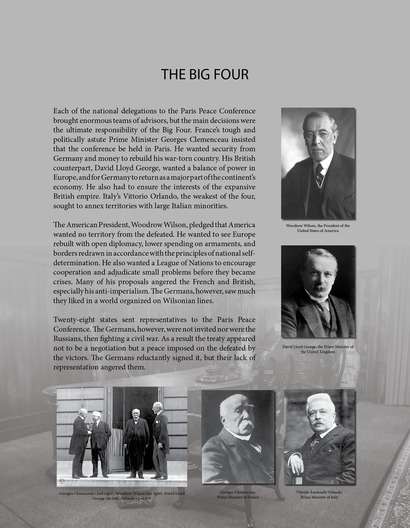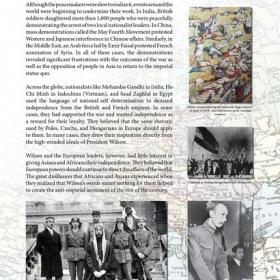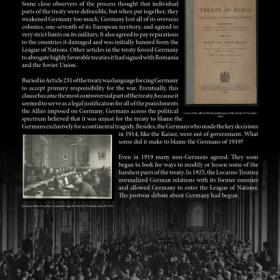The Big Four
Each of the national delegations to the Paris Peace Conference brought enormous teams of advisors, but the main decisions were the ultimate responsibility of the Big Four. France’s tough and politically astute Prime Minister Georges Clemenceau insisted that the conference be held in Paris. He wanted security from Germany and money to rebuild his war-torn country. His British counterpart, David Lloyd George, wanted a balance of power in Europe, and Germany returned as a major part of the continent’s economy. He also had to ensure the interests of the expansive British empire. Italy’s Vittorio Orlando, the weakest of the four, sought to annex territories with large Italian minorities.
The American President, Woodrow Wilson, pledged that America wanted no territory from the defeated. He wanted a Europe rebuilt with open diplomacy, lower spending on armaments, and borders redrawn in accordance with the principles of national self-determination. He also wanted a League of Nations to encourage cooperation and adjudicate small problems before they became crises. Many of his proposals angered the French and British, especially his anti-imperialism. The Germans, however, saw much they liked in a world organized on Wilsonian lines.
Twenty-eight states sent representatives to the Paris Peace Conference. The Germans, however, were not invited nor were the Russians, then fighting a civil war. As a result the treaty appeared not to be a negotiation but a peace imposed on the defeated by the victors. The Germans reluctantly signed it, but their lack of representation angered them.


